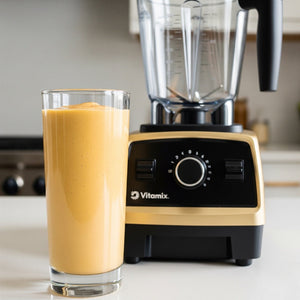
LISTEN ON: APPLE PODCASTS | SPOTIFY
Surgeon-turned-metabolic health expert Dr. Casey Means explains how to achieve metabolic fitness with Levels, the latest health tech phenomenon that continuously monitors your glucose levels and helps you learn from your individual habits and glucose response.
Stanford-trained MD, biomedical researcher Dr. Casey Means left the operating table to pursue metabolic health research and create the continuous glucose sensor, Levels. a wearable device that continuously tracks your blood glucose levels, giving you the vital data to transform and optimize your lifestyle for metabolic health.
We deep dive into glucose analysis and ways you can manipulate sleep, exercise, and food patterns to generate optimum levels of health and sustainable energy throughout the day.
Show Notes:
Casey Means is a doctor specializing in head and neck surgery, which is usually treatment for conditions related to inflammation
Blood sugar problems and insulin resistance are all linked to diabetes, stroke, cancer, Alzheimer's disease
Levels gives users a clear look at their blood sugar curve in real time, helping people teach themselves what works best for them to avoid blood sugar problems and developing insulin resistance
A Continuous Glucose Monitor (CGM) is a small device with a probe that goes in your skin and detects your blood glucose continually and sends that information to your phone so you can monitor your glucose curve throughout the day
Glucose is our foundational unit of energy in our bodies with fat being the secondary energy source, and the body works best when it is functioning within a narrow glucose range
High glucose spikes causes insulin to be released and elevated insulin over time can lead to insulin resistance and overall heightened blood sugar
High insulin also blocks the body from burning fat for energy, but if we stay within that narrow glucose range we can develop metabolic flexibility to be able to switch between burning glucose to burning fat (21:00)
Adding fat, fiber, and protein to carbohydrates can lessen glucose spikes and keep blood sugar more steady
Carbohydrate response is individual, and CGMs help identify how individuals react to different levels of carbs
The optimal glucose range is about 70-100mg/dl, which is a more narrow range than the standard medical range, but this narrow range helps promote metabolic health
70-85 is the lowest risk range for fasting glucose
The goal is to not see your glucose rise more than 20 or 30 points following a meal (31:00- meal ideas)
Food pairing, timing, and food sequencing also impact blood glucose response, try pairing carbs with protein and fat to lessen glucose spikes
Eating carbs later in a meal tends to lead to a better glucose response
Time restricted eating can lead to overall lower blood glucose levels over 24 hours
Vinegar and cinnamon are helpful at increasing insulin sensitivity and lowering glucose spikes
Resources:
Website: levelshealth.com
Use my invitation to jump the waiting list for a Levels CGM: levels.link/kelly
Connect with Kelly:
Instagram: @bewellbykelly
Facebook: www.facebook.com/bewellbykelly
Be Well By Kelly is a production of Crate Media





